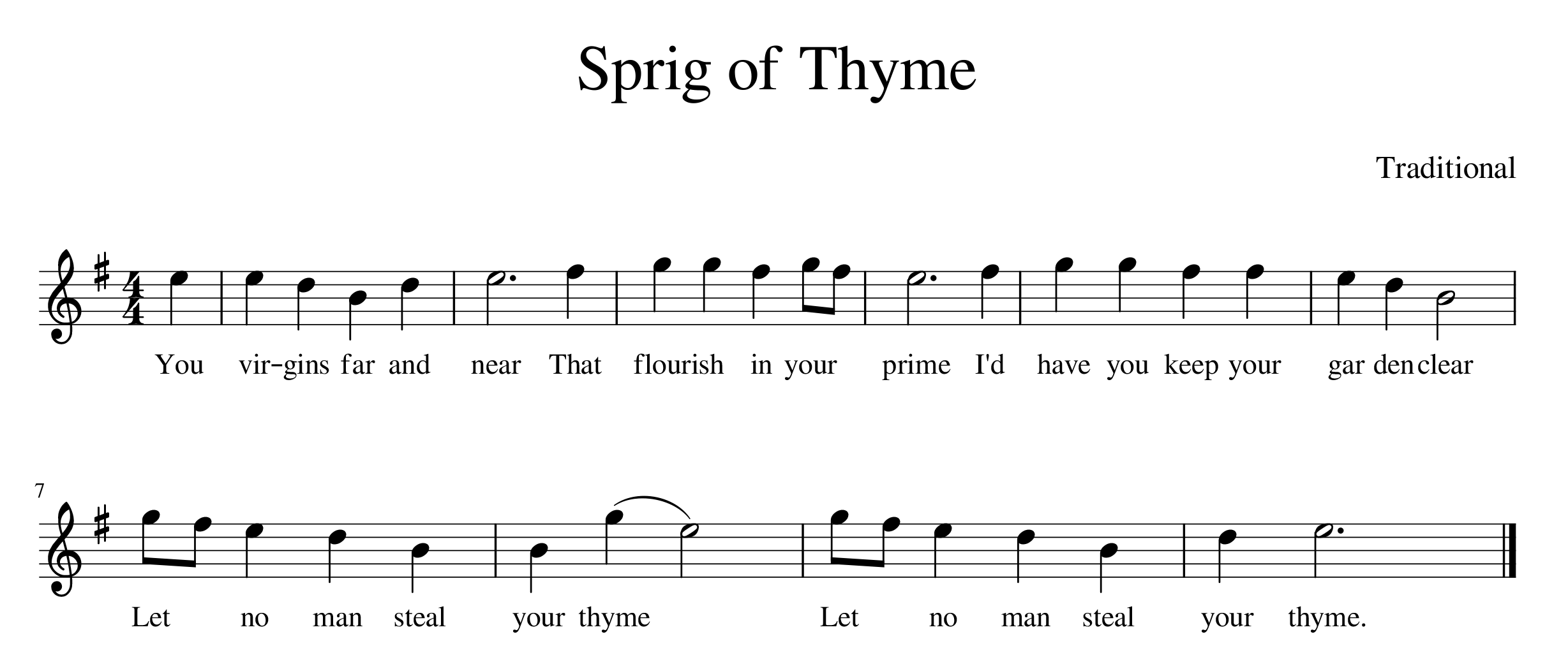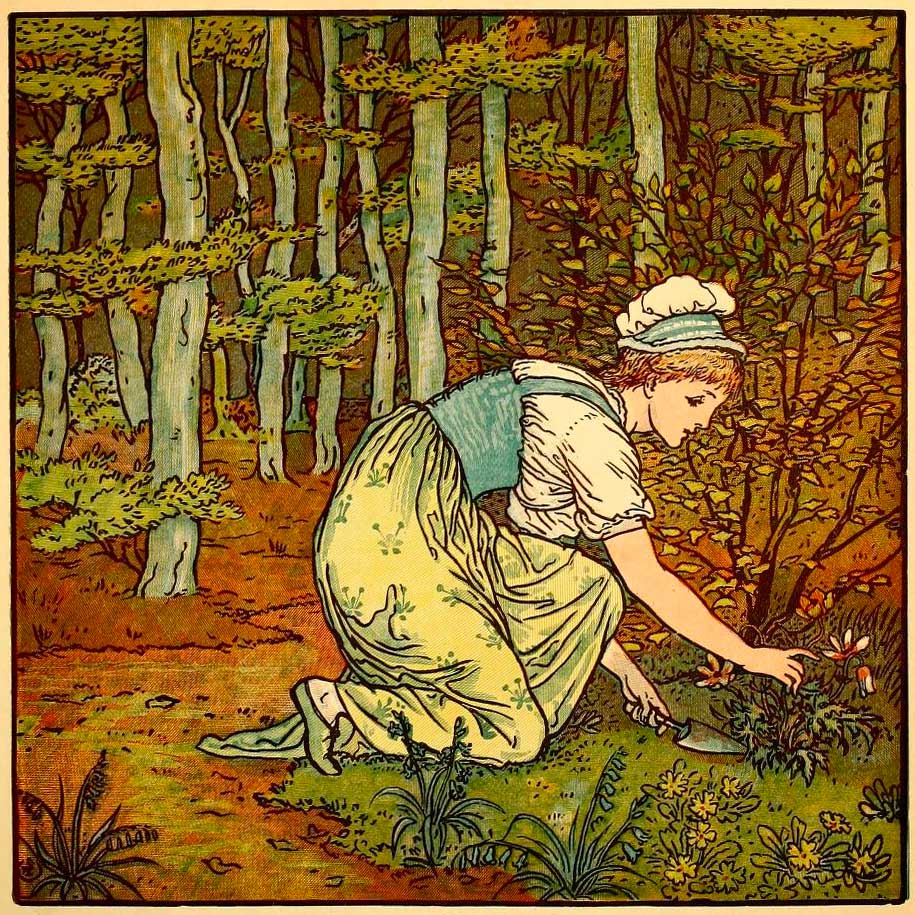Introduced by Peter and Barbara Snape
“Sprig of Thyme” was widely collected and published on broadsides throughout the British Isles. The version we sing here is from the John Greaves collection of Irlam Hall, Manchester and published in Lancashire Lyrics, Songs and Ballads of the County Palatine, edited by John Harland in 1866.
The song is of the same character as “The Seeds of Love” and also “Love’s Evil Choice or The Unfortunate Damsel,” a poem written by Mrs Fleetwood of Habergham Hall, Padiham, near Burnley in Lancashire, who wrote it to console herself when, in 1689, her husband’s extravagances finally led to the loss of the family estate.
It is interesting to note some similarities between “Sprig of Thyme” and “Seeds of Love,” the first song collected by Cecil Sharp.
Listen to Peter and Barbara Snape singing “Sprig of Thyme:”

Lyrics
You virgins far and near,
That flourish in your prime,
I’d have you keep your gardens clear,
Let no man steal your thyme.
Once I had a sprig of thyme,
It flourished night and day,
Til at length there came a false young man,
Who stole my thyme away.
And now my thyme’s all gone,
And I cannot plant no new,
In the very same place where grew my thyme,
It’s overrun with rue.
Rue, rue, runs over all;
But rue will not be seen,
I will plant again in the very same place,
And call it willow green.
Willow, willow, I must wear,
And willow is my doom,
Since my false love has forsaken me,
And left me here to moan.
The gardener standing by,
Three flowers he offered me,
The lily, the pink, the red rose-bud,
But I refused all three.
The pink is a flower that is sweet,
And so is the rose in June;
The lily is the virgin flower,
Alas! oft cropped too soon.
Peter and Barbara Snape live in the North West of England and perform traditional song from that area. They research songs with varied and interesting themes and perform them with commitment, passion and enjoyment. Closely aligned to their research and singing interests, Cotton Town Chronicles is a presentation of songs about working life during the age when cotton and coal were king in Lancashire. Anne Geddes Gilchrist, OBE, with its focus on the songs she collected in her native Lancashire, is an overview of a remarkable woman who became a pivotal figure both within the folk-song collecting community of the early 20th Century and in the publication of the Journal of the Folk Song Society.


 Thanks to the Massachusetts Cultural Council for their generous support.
Thanks to the Massachusetts Cultural Council for their generous support.